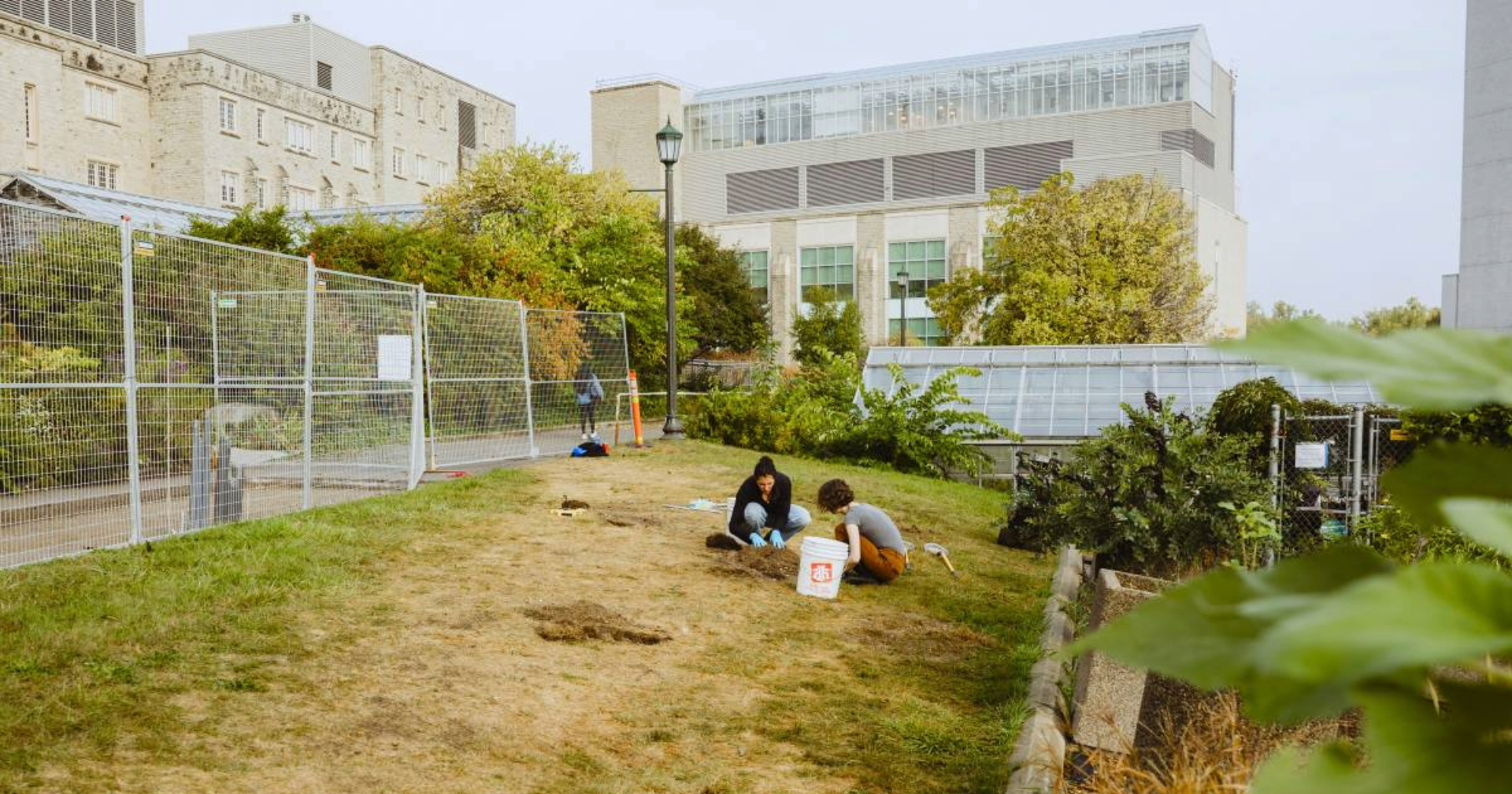Science
Western Researchers Secure $3.4 Million for Innovative Projects

Fourteen researchers from Western University in Canada have received a total of $3.4 million from the Canada Foundation for Innovation (CFI). This funding aims to tackle pressing challenges facing the country, including health care for an aging population, next-generation communication systems, and environmental sustainability amidst climate change.
The financial support is part of the CFI’s John R. Evans Leaders Fund (JELF) and includes $267,274 awarded to Professor Geneviève Metson from the Department of Geography and Environment. With additional contributions from Western University and federal and provincial governments, Metson plans to establish two interconnected labs: a conventional lab for chemical analysis and a living lab on campus. These facilities will collaborate to mitigate the ecological risks associated with urban agriculture, which, while providing community benefits, can inadvertently contaminate local waterways.
Metson’s project focuses on understanding the movement of nutrients from soil to water, particularly how climate change influences this process. “The project looks at cities, nutrient cycling, and climate change all in one dynamic way,” Metson stated. “We want to work with real people on real problems in real settings. It’s a lot messier, but we’re in a climate emergency now, and we need to experiment, monitor, and course-correct in real time, learning as we go to find the solutions we need.”
Urban Agriculture and Nutrient Management
The living lab will consist of two garden plots located next to Western’s existing community gardens. Student groups and faculty associations will manage these plots, making decisions about planting and cultivation. Metson’s team will employ advanced monitoring equipment to track the flow of essential nutrients such as nitrogen and phosphorus through the urban agricultural system at various soil depths.
This research is particularly crucial, as excessive nitrogen and phosphorus runoff can lead to harmful algal blooms in bodies of water, including the nearby Great Lakes. Metson explained, “It’s not that nitrogen and phosphorus are pollutants we need to avoid. They’re resources we need to manage judiciously, and that can be difficult in urban gardening where the primary purpose might be social cohesion.”
Urban gardeners often utilize recycled materials such as manure or compost. Despite their good intentions, these materials can create unexpected problems. “The nutrients in those materials can be leached or run off. The nutrient ratios in recycled materials don’t always match what plants need, leading to over-application and increased runoff,” Metson noted.
The project builds on previous research conducted by Metson’s team in Sweden, which revealed that significant nutrient losses often occur during winter and spring, before planting begins. “The majority of these nutrient losses are not actually happening when people are in the garden applying fertilizers,” she added. “It happens during freeze-thaw events—a dynamic time for nutrient movement.”
Long-Term Goals and Interdisciplinary Collaboration
Over the next five years, Metson’s research will collect vital data on the effects of climate change on agricultural systems. The project’s on-campus location provides researchers with the opportunity to monitor these systems year-round, allowing for rapid responses to significant weather events. The data gathered will help establish best management practices for nutrient conservation.
Metson envisions that the findings will inform nutrient management strategies across various urban green spaces and contribute to the training of students for future sustainability initiatives. She is also enthusiastic about potential collaborations. “Once we have this beautiful setup with all this equipment, we might also be able to look at biodiversity, crop responses, and the use of biochar,” Metson explained.
In an innovative twist, Metson has integrated the arts into her project. She has hired Danielle Petti, a PhD student in visual arts, to document the living lab process. Additionally, Metson is planning to commission artists to create a mural for the site’s fence, culminating in an exhibition of collaborative work at Cohen Commons in September 2026. “It’s so important that we do rigorous science – and it also needs to connect with people and place in new ways,” she stated.
Other projects funded through the JELF at Western include initiatives in music accessibility, RNA viruses’ impact on brain function, and advancements in communication technology. These efforts collectively highlight the university’s commitment to addressing diverse societal challenges through interdisciplinary research and collaboration.
-

 Science3 months ago
Science3 months agoToyoake City Proposes Daily Two-Hour Smartphone Use Limit
-

 Health4 months ago
Health4 months agoB.C. Review Reveals Urgent Need for Rare-Disease Drug Reforms
-

 Top Stories4 months ago
Top Stories4 months agoPedestrian Fatally Injured in Esquimalt Collision on August 14
-

 Technology3 months ago
Technology3 months agoDark Adventure Game “Bye Sweet Carole” Set for October Release
-

 World3 months ago
World3 months agoJimmy Lai’s Defense Challenges Charges Under National Security Law
-

 Lifestyle4 months ago
Lifestyle4 months agoVictoria’s Pop-Up Shop Shines Light on B.C.’s Wolf Cull
-

 Technology3 months ago
Technology3 months agoKonami Revives Iconic Metal Gear Solid Delta Ahead of Release
-

 Technology3 months ago
Technology3 months agoApple Expands Self-Service Repair Program to Canada
-

 Technology3 months ago
Technology3 months agoSnapmaker U1 Color 3D Printer Redefines Speed and Sustainability
-

 Technology3 months ago
Technology3 months agoAION Folding Knife: Redefining EDC Design with Premium Materials
-

 Technology4 months ago
Technology4 months agoSolve Today’s Wordle Challenge: Hints and Answer for August 19
-

 Business4 months ago
Business4 months agoGordon Murray Automotive Unveils S1 LM and Le Mans GTR at Monterey









